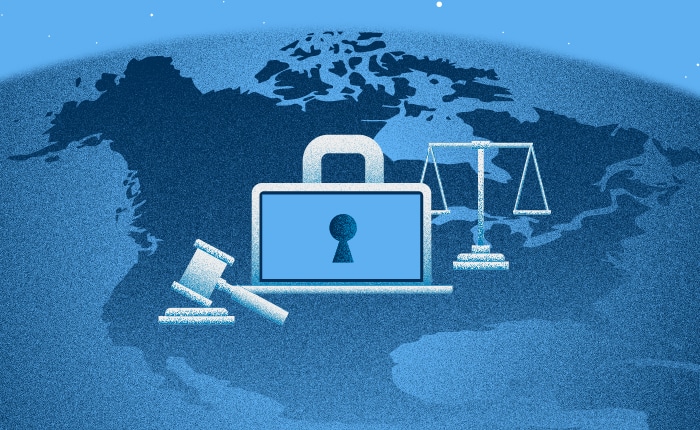Diving into Understanding Data Privacy Laws, this intro hooks you with a fresh take on safeguarding info in today’s digital world. Get ready to explore the ins and outs of data privacy laws like never before.
From the significance of these laws to the nitty-gritty of regulations worldwide, this topic is about to take you on a wild ride through the realm of data protection.
Overview of Data Privacy Laws: Understanding Data Privacy Laws
In today’s digital age, data privacy laws play a crucial role in safeguarding individuals’ personal information from misuse, unauthorized access, and exploitation. These laws are designed to regulate how organizations collect, store, process, and share data, ensuring transparency, accountability, and protection for individuals.
Key Objectives of Data Privacy Laws
- Protecting individuals’ personal information from unauthorized access and misuse.
- Ensuring transparency and accountability in the handling of data by organizations.
- Empowering individuals with rights to control their own data and make informed choices.
- Promoting trust and confidence in digital services and online interactions.
Countries with Stringent Data Privacy Regulations, Understanding Data Privacy Laws
- The European Union: The General Data Protection Regulation (GDPR) is one of the most comprehensive data privacy laws globally, setting strict standards for data protection and privacy.
- California, United States: The California Consumer Privacy Act (CCPA) grants California residents extensive rights over their personal data and imposes obligations on businesses regarding data collection and processing.
- Canada: The Personal Information Protection and Electronic Documents Act (PIPEDA) regulates the collection, use, and disclosure of personal information by private sector organizations.
General Data Protection Regulation (GDPR)

The General Data Protection Regulation (GDPR) is a comprehensive data privacy law that came into effect in the European Union in 2018. It aims to protect the personal data of EU citizens and residents and standardize data protection laws across the region.
Main Principles of GDPR
- Consent: Individuals must give clear consent for their personal data to be collected and processed.
- Transparency: Organizations must be transparent about how they collect, use, and share personal data.
- Data Minimization: Only the necessary data should be collected and processed for a specific purpose.
- Security: Organizations must implement appropriate security measures to protect personal data from breaches.
- Accountability: Organizations are responsible for complying with GDPR and must demonstrate compliance.
Impact of GDPR on Businesses
- Increased Compliance Costs: Businesses need to invest in data protection measures to comply with GDPR requirements.
- Enhanced Data Security: GDPR motivates businesses to improve their data security practices to avoid hefty fines for non-compliance.
- Global Impact: GDPR has influenced data privacy laws in other countries around the world, setting a standard for data protection.
Comparison with Other Data Privacy Laws
- GDPR vs. CCPA (California Consumer Privacy Act): Both laws focus on data protection, but GDPR applies to EU residents while CCPA applies to California residents.
- GDPR vs. PDPA (Personal Data Protection Act) in Singapore: GDPR has more stringent requirements compared to PDPA, especially in terms of consent and data security.
- GDPR vs. LGPD (Lei Geral de Proteção de Dados) in Brazil: Both laws aim to protect personal data, but LGPD has a different scope and applicability compared to GDPR.
California Consumer Privacy Act (CCPA)

The California Consumer Privacy Act (CCPA) is a state statute that enhances privacy rights and consumer protection for residents of California. It aims to give consumers more control over their personal information that is collected and processed by businesses.
Key Provisions of CCPA
- Right to know what personal data is being collected
- Right to request deletion of personal data
- Right to opt-out of the sale of personal data
- Right to non-discrimination for exercising privacy rights
Rights Granted to California Consumers under CCPA
- Right to access their personal information collected by businesses
- Right to request deletion of their personal information
- Right to opt-out of the sale of their personal information
- Right to know if their personal information is being sold or disclosed and to whom
Similarities and Differences between CCPA and GDPR
While both CCPA and GDPR focus on protecting consumer data privacy, there are some key differences between the two regulations:
- Scope: GDPR applies to all businesses processing personal data of individuals in the EU, while CCPA applies to businesses that collect personal data of California residents.
- Penalties: GDPR imposes fines of up to 4% of global turnover or €20 million, whichever is higher, for non-compliance. CCPA allows for fines of up to $7,500 per violation.
- Opt-Out Rights: CCPA grants consumers the right to opt-out of the sale of their personal information, which is not explicitly provided in GDPR.
- Data Portability: GDPR includes provisions for data portability, allowing individuals to obtain and reuse their personal data for their own purposes across different services. CCPA does not have a similar requirement.
Compliance and Enforcement
Compliance with data privacy laws is crucial for organizations to protect the personal information of their customers and avoid legal repercussions. However, many companies face significant challenges in ensuring compliance with these regulations.
Challenges in Compliance
- Lack of awareness: Some organizations may not fully understand the requirements of data privacy laws, leading to unintentional violations.
- Complexity of regulations: Data privacy laws such as GDPR and CCPA have intricate provisions that can be challenging to interpret and implement.
- Resource constraints: Compliance efforts require dedicated time, expertise, and financial resources which may be limited for some companies.
- Global operations: Companies operating in multiple jurisdictions must navigate varying data privacy laws, adding complexity to compliance efforts.
Penalties for Non-Compliance
- Financial penalties: Non-compliance with data privacy regulations can result in hefty fines, such as GDPR’s maximum fine of €20 million or 4% of annual global turnover.
- Reputational damage: Violations of data privacy laws can tarnish a company’s reputation and erode customer trust, leading to loss of business.
- Litigation risks: Non-compliance can expose organizations to lawsuits and legal action from affected individuals or regulatory authorities.
Strategies for Ensuring Compliance
- Implement robust data protection policies: Establish clear guidelines for handling personal data and ensure employees are trained on data privacy best practices.
- Conduct regular audits: Regularly review data processing activities to identify and address compliance gaps proactively.
- Engage legal counsel: Seek legal advice to ensure that your data privacy practices align with the requirements of relevant regulations.
- Stay informed: Monitor updates to data privacy laws and regulations to adapt your compliance efforts accordingly.
